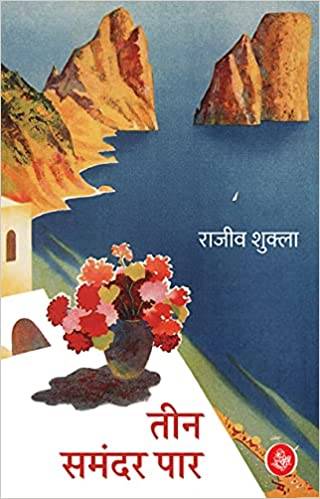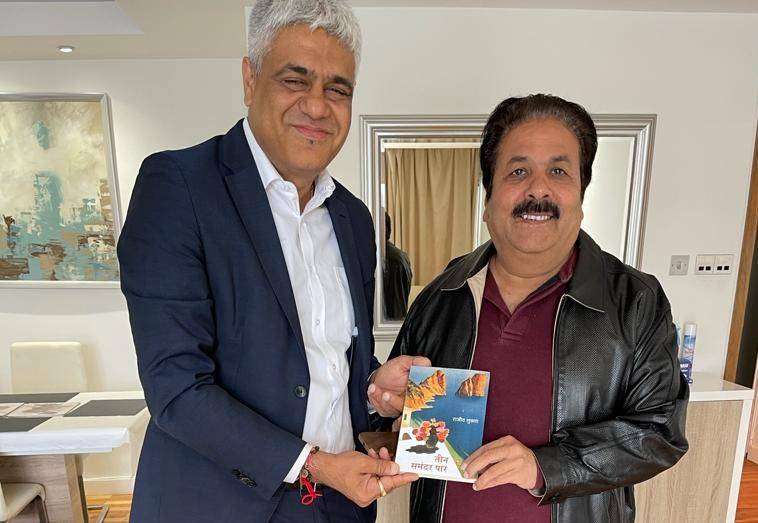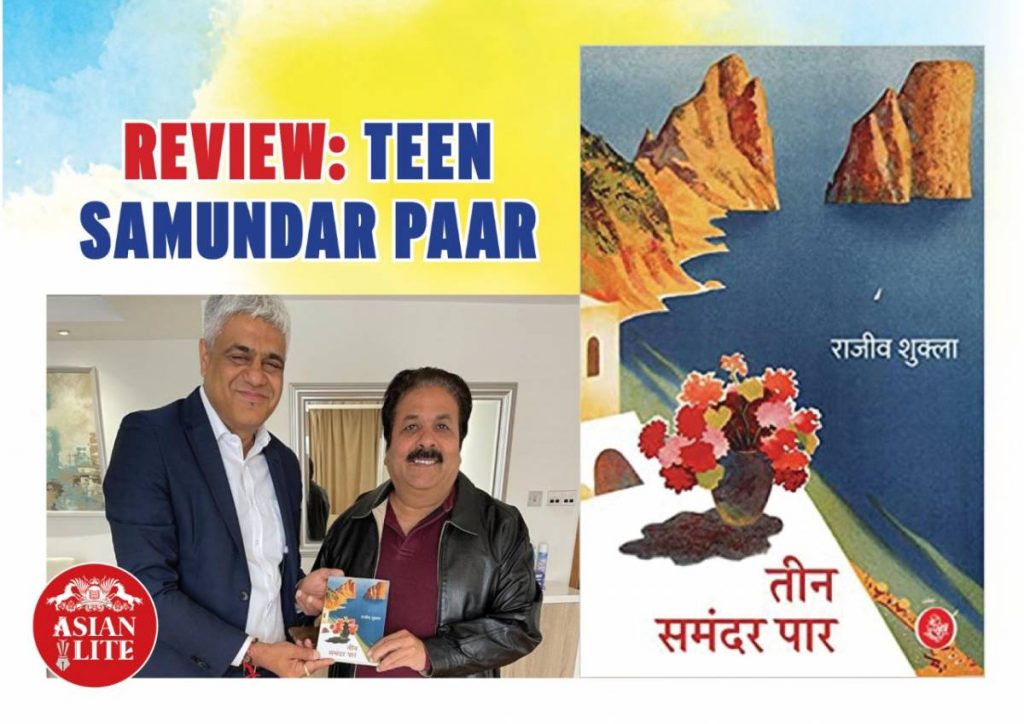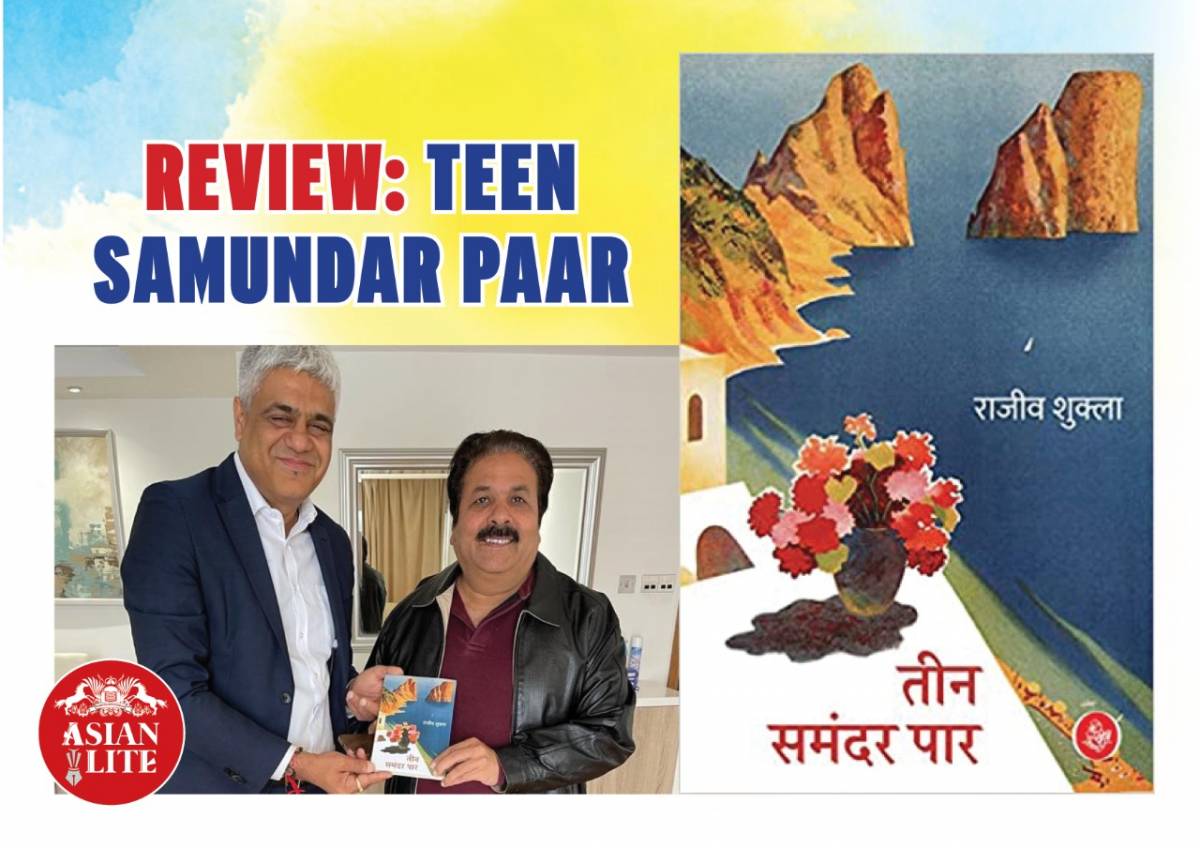Mr Rajeev Shukla, a veteran name in Indian Journalism and politics, pleasantly surprises with his understanding of the diaspora and their roots in his novel – Teen Samundar Paar published recently during the pandemic this year …. Review by Manish Tiwari
One of my most memorable trips was to Fiji where once out of the airport, I had a pleasant surprise to see a Hindi newspaper prominently displayed in the local newspaper corner. Further, as I embarked from the airport, the taxi driver spoke ‘Shudh Hindi’, the kind no one speaks in urban India anymore and we talked about his Indian roots culminating in a discussion about Ramayana.
It was beyond me that this man who had not even visited India in his lifetime, had a Ramayana at home which was not just an ornamental book to be revered but read daily. The struggles of life and politics in Fiji was evident in how the divide between black community and Indians defined the nation as predictably Indians were the business community and the divide was economic as well as cultural. The food was as close to home with the taste still lingering in my mouth and not what goes by Indian food in the restaurants across the globe and the sugarcane juice mixed with Indian masala and lime was exactly like India but without the grime and hygienic.

It was like a paradise for me where you got everything Indian but also clean air and natural bounty without the pollution and population.
Little did I know about the pain and separation and the journey for many to keep that ‘identity’ as a people displaced not by choice and desire to be global but rather born out of abject poverty a century or more ago.
Rajeev Shukla, a veteran name in Indian Journalism and politics, pleasantly surprises with his understanding of the diaspora and their roots in his novel – Teen Samundar Paar published recently during the pandemic this year.
The heartbreak and the pain of being displaced centuries ago and the struggle to keep that identity and connection in spite of all challenges beautifully creates the backdrop of the novel though eventually it becomes a feel good novel about a women taking what is rightfully hers in a world where her family has been wronged.
Mr Shukla has a style which is a rare combination of serious journalistic impulses mixed with racy narrative style which makes this novel a potboiler but without losing its sensitive moorings in the pain and journey of a diaspora wronged in many ways but strong enough to survive it all and still retain that Indian ness which defines the people from the subcontinent.
Vishwanath named after the famous deity from Benaras, becomes the Prime Minister of Trinidad and eventually betrayed by his own kin is the central plot of the novel and how Sylvia his daughter eventually returns to avenge the wrongdoing, forms the second half of the book. There are too many parallels close to real life figures as Rajeev frequently draws from his extensive foray into Cricket and life of politics to create characters who I am sure he has met along his way. He tries to thinly disguise them but quite often spells them out in an effort to make the narrative relevant and believable. The narrator – Prashant comes close to real life election psephologist – Prashant Kishore and Shukla makes him, his alter ego for the purpose of the novel. I am sure his close friends will find other characters whom they identify.

This is a new phase of writing in Hindi with a global backdrop but with great comfort and understanding of the people and culture and how the new Indians who are rich and can afford ‘luxury cruise’ are still struggling with sexual morality and the inherent hypocrisy embedded in the Indian way of life. Shukla’s writing wades through this in the backdrop of holidaying Indians on the global luxury cruise while keeping his narrative focused on the story of Silvia in a racy way and that is the strength of the novel that its immensely readable and likeable but it doesn’t pretend to be literary and is rather a happy story.
The love story of Silvia and Smith is another area which has not been touched upon by Indian writers as a love story between an Indian and a black African origin West Indian.
Living in the UK, I have often come across highly educated and well to do Indians who are almost traumatised by the thought of their son or daughter getting married to a black boy or girl. They consider this possibly as the worst outcome and secretly dread it even if they are not able to voice it in the age of politically correct mores of public life. Rajeev Shukla deftly deals with this subject and shows great sensitivity in bringing out the nuances of a love affair between an Indian girl who is never expected to fall in love with a black man. However, at times this becomes too simplistic and too good to be true. Nevertheless, Rajeev deals with a social taboo which the Indian diaspora needs to look at. Even a man as educated and well-heeled as Rajat Gupta who led McKinsey found it difficult for his daughter to marry an African American as he talks about in his book. The political and racial divide between South Asian diaspora and the black communities abound and is a proof that Indians are as racist or perhaps more than their white counterparts.
That said, this is a great read for the diaspora and I wish Mr Shukla, success with this novel which doesn’t have a precedence in Hindi literature and is actually quite contemporary and doesn’t have any pretensions to be literary and hence is a great read. It starts with a storyline much like Akhilesh’s acclaimed Hindi novel Nirvasan (Exile) and eventually becomes a racy feel good story more in the tradition of Hindi thrillers.

The references to London makes you relook at this city and one can’t help but notice that the writer has a great love for this city and its Indian denizens who make this city an all-out Indian affair. He perhaps knows more about the city and its secrets than many of us and he should certainly do a novel based in London and its Indian characters.
Rajeev Shukla is both a politician and a journalist of a rare kind who retains his humanity above all but he is equally a keen observer of the diaspora and a great story teller as is evident with this book. I am sure this novel will capture the imagination of the diaspora if translated in English and available to the young readers, a challenge in our oversubscribed digital age. Needless to say it will also make for a great Netflix series.


Leave a Reply